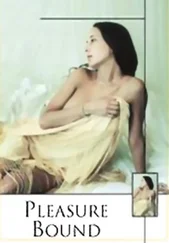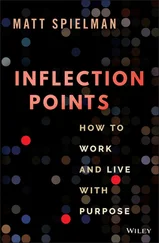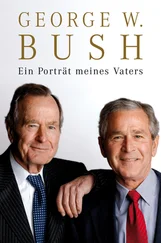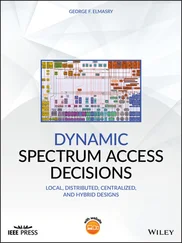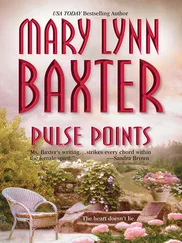I had thought through some big questions. Was I willing to forgo my anonymity forever? Was it right to subject my family to the scrutiny of a national campaign? Could I handle the embarrassment of defeat with the whole country watching? Was I really up to the job?
I believed I knew the answers, but there was no way to be sure.
I did know that I felt a calling to run. I was concerned about the future of the country, and I had a clear vision of where to lead it. I wanted to cut taxes, raise standards in public schools, reform Social Security and Medicare, rally faith-based charities, and lift the sights of the American people by encouraging a new era of personal responsibility. As I said in my speeches, “When I put my hand on the Bible, I will swear to not only uphold the laws of our land, I will swear to uphold the honor and dignity of the office to which I have been elected, so help me God.”
My exposure to the presidency had revealed the potential of the job. The two presidents I knew best, Dad and Ronald Reagan, had used their time in office to accomplish historic objectives. President Reagan had challenged the Soviet Union and helped win the Cold War. Dad had liberated Kuwait and guided Europe toward unity and peace.
I had also seen the personal side of the presidency. For all the scrutiny and stress, Dad loved the job. He left office with his honor and values intact. Despite the many pressures, the intensity of the experience brought our family closer together.
The decision process was all-consuming. I thought about it, talked about it, analyzed it, and prayed about it. I had a philosophy I wanted to advance, and I was convinced I could build a team worthy of the presidency. I had the financial security to provide for my family, win or lose. Ultimately, the decisive factors were less tangible. I felt a drive to do more with my life, to push my potential and test my skills at the highest level. I had been inspired by the example of service my father and grandfather had set. I had watched Dad climb into the biggest arena and succeed. I wanted to find out if I had what it took to join him.
Even if I lost, I would still have a wonderful life. My family loved me. I would be governor of a great state. And I would never have to wonder what might have been. “When my time is up,” I would tell friends, “my dance card is going to be full.”
My announcement came at a barbecue in the small Iowa town of Amana. I gave my speech in a barn, atop a stage covered with hay in front of a giant cornfield. Congressman Jim Nussle, who would later serve as my Office of Management and Budget director, introduced me by singing “Iowa Stubborn” from The Music Man . With Laura at my side, I said, “I’m running for president of the United States. There’s no turning back, and I intend to be the next president.”

My path to that day was unconventional. I hadn’t spent a lifetime planning to run for president. If I had, I probably would have done a few things differently when I was younger. Yet along the journey, I built up the desire and skills to wage and win a presidential campaign. The seeds of that decision, like many others in my life, were planted in the dusty ground beneath the boundless sky of Midland, Texas.
Politics in Midland were conservative. West Texas has an independent spirit and distrust of centralized government. Like much of Texas, Midland had been dominated by the Democratic Party for generations. Midland’s sprawling congressional district, which included seventeen counties, had been represented by a Democrat named George Mahon for forty-three years. He was the longest-serving congressman in America. On July 6, 1977—my thirty-first birthday—he announced that he would retire at the end of his term.
By then I had been back in Midland for two years after business school. I was learning the oil business, reconnecting with friends, and generally enjoying life. I was also getting a feel for the political scene.
While I had never considered politics as a profession, I had helped out in all of Dad’s campaigns: his Senate race in 1964, his House campaign in 1966, and his second bid for the Senate in 1970. Before I started flight training in 1968, I spent several months as a traveling aide to Congressman Edward Gurney, who was running for the Senate in Florida. The highlight of the experience was a huge rally in Jacksonville where Gurney was endorsed by the tall, tan governor of California, Ronald Reagan. In 1972, I was the political director for Red Blount’s Senate campaign in Alabama. In 1976, I volunteered on President Ford’s West Texas operation in the Republican primary. I helped him win a total of zero delegates.
The campaign lifestyle was a perfect fit for me in my twenties. I enjoyed moving around and meeting new people. I thrived on the intensity and competition of the races. I liked the finality that came on election day, when the voters picked a winner and we all moved on. I hadn’t planned it this way, but by the time Congressman Mahon retired, I was a relatively seasoned political operative.
I started to think about running for the seat. I had the experience to handle the political side of the race. I also felt something stronger pulling me in. I was concerned about the direction of the country. My experiences in business school, China, and the oil business were converging into a set of convictions: The free market provided the fairest way to allocate resources. Lower taxes rewarded hard work and encouraged risk taking, which spurred job creation. Eliminating barriers to trade created new export markets for American producers and more choices for our consumers. Government should respect its constitutional limits and give people the freedom to live their lives.
When I looked at Washington under President Jimmy Carter and the Democratic Congress, I saw the opposite. They had plans to raise taxes, tighten government control over the energy sector, and substitute federal spending for private-sector job creation. I worried about America drifting left, toward a version of welfare-state Europe, where central government planning crowded out free enterprise. I wanted to do something about it. I was having my first experience with the political bug, and it was biting hard.
When I told Mother and Dad about my idea, they were surprised. My decision must have seemed like it had come out of nowhere, but they didn’t want to dampen my enthusiasm. Dad asked if I would be willing to listen to advice from a friend of his, former Texas Governor Allan Shivers. “Absolutely,” I said. Shivers was a legend. He had been the longest-serving governor in Texas history. He was a conservative Democrat, and his advice would be valuable in a race against Kent Hance, a right-of-center state senator and the likely Democratic nominee.
When I went to see the old governor, he asked me point-blank if I was running for Mr. Mahon’s seat. I said I was seriously considering the race. He looked me in the eye and said, “Son, you can’t win.” There was no encouragement, no nothing. He told me that the district was drawn perfectly to elect Kent Hance. I mumbled something like “I hope you are wrong if I decide to run,” and thanked him for his time.
I remember wondering why Dad had introduced me to the governor. Looking back on it, it may have been his way of telling me, without smothering my ambition, that I should be prepared to lose.
The first phase of the campaign was the Republican primary. I made it into a runoff against Jim Reese, a smooth-talking former sportscaster and mayor of Odessa. He had run against George Mahon in 1976 and felt entitled to the nomination in 1978. He was very unhappy that I had outpolled him in the first round of the primary.
Читать дальше


